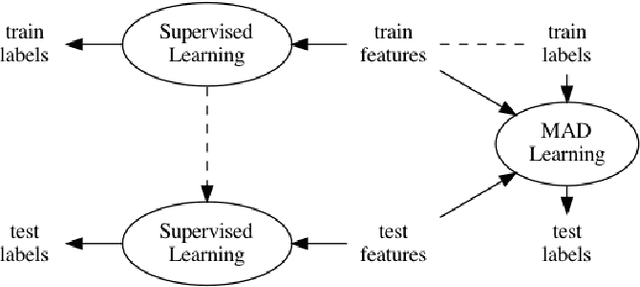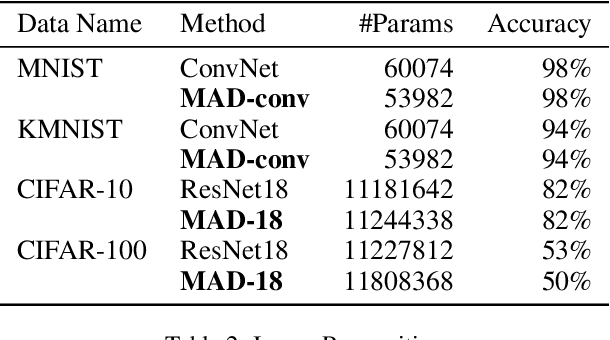Memory-Associated Differential Learning
Paper and Code
Feb 10, 2021



Conventional Supervised Learning approaches focus on the mapping from input features to output labels. After training, the learnt models alone are adapted onto testing features to predict testing labels in isolation, with training data wasted and their associations ignored. To take full advantage of the vast number of training data and their associations, we propose a novel learning paradigm called Memory-Associated Differential (MAD) Learning. We first introduce an additional component called Memory to memorize all the training data. Then we learn the differences of labels as well as the associations of features in the combination of a differential equation and some sampling methods. Finally, in the evaluating phase, we predict unknown labels by inferencing from the memorized facts plus the learnt differences and associations in a geometrically meaningful manner. We gently build this theory in unary situations and apply it on Image Recognition, then extend it into Link Prediction as a binary situation, in which our method outperforms strong state-of-the-art baselines on three citation networks and ogbl-ddi dataset.
 Add to Chrome
Add to Chrome Add to Firefox
Add to Firefox Add to Edge
Add to Edge